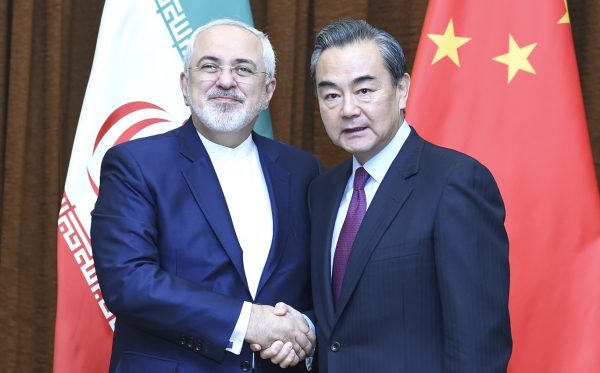The Chinese and Iranian foreign ministers on Monday urged the global powers which presided over last year’s landmark nuclear deal not to violate the agreement, after a meeting in Beijing.
Iranian FM Mohammad Javad Zarif said that each of the seven nations involved “have the obligation to fully implement [it]”.
Iran, and the permanent members of the UN Security Council and Germany – known as the P5+1 – reached a historic deal in Vienna in July 2015 to curb Tehran’s nuclear program in exchange for a lifting of punitive sanctions.
Iran would freeze its nuclear program for at least 10 years, and reduce its nuclear centrifuges (needed to produce fissile material for an atomic bomb) from 19,000 to 6,000.
The centrifuges would hold no fissile material, however.
But since Iran ratified the deal in October 2015, there have been moves among the US Republican party to derail the agreement.
US President-elect Donald Trump has indicated that he would move to cancel the deal altogether when he takes office next year.
Last week, he nominated retired Marine Corps General James Mattis to be his administration’s secretary of defense. Mattis is known to have opposed US President Barack Obama on Iran policy; he was removed from his post as the commander of Centcom due to his disagreements with the Obama White House.
He has previously said that Iran is the single biggest threat to Middle East security and stability.
But Chinese Foreign Minister Wang Yi insists that a change of administration in Washington should not impact the deal.
“Maintaining the deal’s continued, comprehensive and effective implementation is the responsibility and common interest of all parties, and should not be impacted by changes in the internal situation of each country,” Wang told Zarif in Beijing on Monday.
Sanctions extended
Meanwhile, Obama last week signed a bill extending the Iran sanctions for another 10 years.
Earlier, the Senate voted unanimously to the sanctions by a vote of 99-0.
The sanctions, which target Iran’s energy, military and banking sectors exist on paper only for the moment as they have been waived in exchange for Iran continuing to comply with the Vienna nuclear deal.
Last Friday, White House spokesman Eric Schultz called the extension “not necessary.”
“We believe the Iran Sanctions Act extension is not necessary, but we also believe it won’t interfere with the Iran deal,” Schultz told reporters.
“We haven’t been shy about taking action in response to those actions that includes strong robust sanctions, and that’s not going to change.”
The Iran Sanctions Act was slated to expire by the end of the year.
